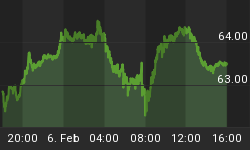22 Minutes, 36 Slides
There are five distinct stages in the life cycle of sovereign nations. These life cycle stages map to generational cycles and to Long Cycles such as the Kondratieff Cycle. Since these cycles are fundamentally behavioral shifts, they consequentially take the nations economic and political process with it. Democracies become exposed and borderline ungovernable in Stage V. This is a result of the electorate's expectations, entitlements and James Madison's "Complicity from the Tyranny of the Majority", as outlined in the "Federalist Papers".
Stage V
After bubbles burst and when deleveraging occur, private debt growth, private sector spending, asset values and net worth decline in a self-reinforcing negative cycle. To compensate, government debt growth, government deficits and central bank "printing" of money typically increase. In this way, their central banks and central governments cut real interest rates and increase nominal GDP growth so that it is comfortably above nominal interest rates in order to ease debt burdens. As a result of these low real interest rates, weak currencies and poor economic conditions, their debt and equity assets are poor performing and increasingly these countries have to compete with less expensive countries that are in the earlier stages of development. Their currencies depreciate and they like it! As an extension of these economic and financial trends, countries in this stage see their power in the world decline.
Accepting Stage V
Success breeds complacency and complacency breeds leverage. Fiat currency enables a late stage country to delay the realization that it is no longer rich, but not avoid it. The developed and emerging nations are in obviously different positions and consequentially their behavioral traits and priorities are different. Accepting the realities of Stage V is still to come for the developed world, and when it does it will be sudden and shocking to most people -- and to the financial markets. The Stage I, II and III countries remain dependent on the late-stage countries, which will make the Stage IV & V descent into poverty painful for all involved.
The End Game
Because governments are borrowing aggressively to offset declining private sector leverage, the focus of the next crisis will be sovereign debt/currencies rather than housing or the stock market. In a period of major Global Imbalances, which the world presently faces, this will make democratic policy setting extremely difficult and in fact will show democracies to be borderline UNGOVERNABLE. In cases of grossly distorted expectations, such as the US, it will be found to be UNGOVERNABLE.
This above confluence and much more discussed in the video, indicates that it is leading to a Constitutional Crisis in many developed democratic countries by the end of the decade.
This is the fourth in the Macro Analytic video series entitled "Constitution in Peril" that can be found at GordonTLong.com















